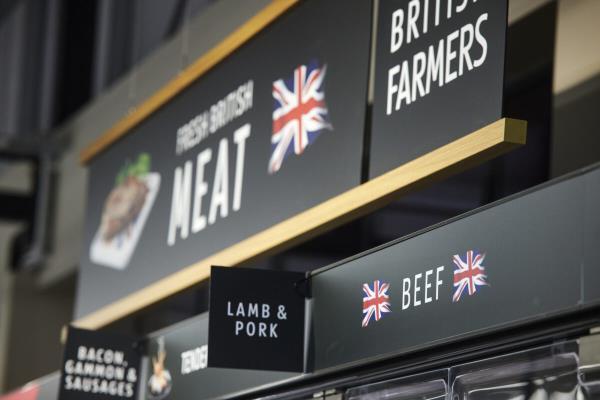Buy British: Are UK supermarkets leading the cost?
The Fresh Produce Consortium (FPC) pushes supermarkets to pay a better price for domestic produce. One way supermarkets can better support British products is by improving their labelling and point-of-sale marketing, according to the FPC. Clear labels that prominently display “British-grown” or “UK-sourced” help consumers make informed decisions that align with their desire to support local farmers and businesses, like it is the case for the UK meat (see picture). Currently on the produce section, these labels are often small and overshadowed by international alternatives, which can confuse shoppers. In-store placement is another factor that could be improved. British products, especially seasonal fruits, vegetables, and meat, should be placed in more visible locations such as the front of aisles or dedicated sections. This would make it easier for consumers to choose British produce without needing to search the shelves.
More value from lower impact
Price is also an important consideration. While British goods may sometimes be more expensive due to higher production costs, supermarkets can introduce loyalty schemes or price promotions to make them more attractive. A focus on quality, freshness, and the reduced environmental impact of buying local can help justify a potentially higher price point. Supermarkets could also educate consumers on the benefits of purchasing British through awareness campaigns. Highlighting the positive impact on the local economy, sustainability, and food security would help build stronger connections between shoppers and local producers. As consumers become more conscious of their food choices, UK supermarkets have a vital role in making it easier and more appealing to buy British. A concerted effort in marketing, visibility, pricing, and education can strengthen the connection between consumers and homegrown goods, benefiting the nation as a whole.





